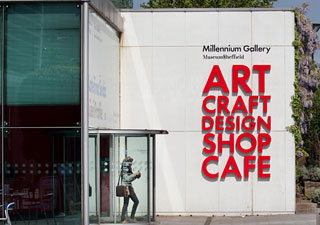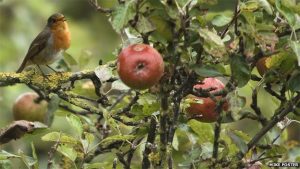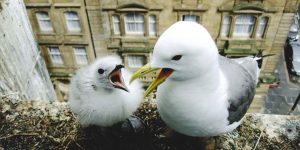Every so often somebody asks us to perform somewhere and it requires a certain repertoire. We generally have a repertoire that rolls around, a mixture of songs old and new – I mean this in both senses, things we’ve sung for ages and things we are learning for the first time, and songs that were written last year or hundreds of years ago. Learning from a couple of experiences, I am now reluctant to learn a particular song for a particular event or even one particular person if I don’t feel we’ll use it again – because that means 30+ people putting in a great deal of time and effort over weeks or months.
However, when we were singing at the Walled Garden in May, someone came along from the volunteers at Bishops’ House, a brilliantly preserved half-timbered house at the top of our park. (See the photo above.) She asked us if we could sing some Tudor songs for their Autumn Fayre in October, and I thought, why not?
 It falls on the same day as Apple Day, which is celebrated across the park in the Walled Garden. This year we had a BIG concert on 3rd September, and then this little window of 5 rehearsals before the twin feasts of Apple Day, at the bottom north-east corner of the park, and the Tudor fair at the top south-west corner. What could we do in five weeks?
It falls on the same day as Apple Day, which is celebrated across the park in the Walled Garden. This year we had a BIG concert on 3rd September, and then this little window of 5 rehearsals before the twin feasts of Apple Day, at the bottom north-east corner of the park, and the Tudor fair at the top south-west corner. What could we do in five weeks?
First of all, what have we got in the back catalogue? We learnt Greensleeves four years ago when other people were getting giddy about the Diamond Jubilee, so that’s on the list.
Many people believe Greensleeves was written by Henry VIIi, but apparently it is definitely after his time – though it is still Tudor. And then there is Non Nobis Domine, a lovely chant we learnt in the very early days of choir and it sounds ancient. I re-scored it for three parts when we had no reliable men in the choir but we had not sung it for years and it would be nice to go back to the four-part version now that we have a strong bass section. With a minimal amount of Googling I found that this was as Tudor as 1988, written for the Kenneth Branagh film of Henry V. Still, on the list it goes. (The battlefield scene where it is played is utterly heartbreaking- have a look on Youtube).
What is quintessentially Tudor? Why, Shakespeare! Let’s find a traditional setting of a Shakespeare song. “When that I was an a little tiny boy” from Twelfth Night, for instance. There is an old tune to this which is used in all the “authentic” performances – but I now discover the tune is by Joseph Vernon, 1738-1782. Not Tudor. Not even Stuart. Definitely Georgian. But it’s very Shakespearean, so we will add that to the set.
We are adding in a couple of rounds which were definitely a-round in Shakespeare’s day (Hey Ho, Come Follow, and Gaudeamus Hodie) and also Don’t Sit Under the Apple Tree, without which no Apple Day would be complete.
And finally, Henry VIII was a real musician, and did write songs, probably the most famous being Pastime with Good Company, which we are singing in three parts. It is not hard to believe the words were written by a famously wilful and high-living king; a brief paraphrase would be, “Having a good time is good for me, and anyway, who’s going to stop me?”
So our Tudor set is a mixture of real and fake, but overall I think it conveys a historical atmosphere and is, crucially, both fun to listen to and to sing.



















